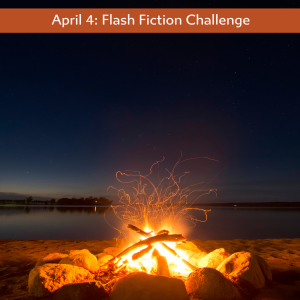Welcome to the School Days, Reminiscences series in which my champion bloggers and authors share reminiscences of their school days. It’s my small way of thanking them for their support and of letting you know about their services and publications.
This week, I am pleased to introduce Pauline King, The Contented Crafter. Pauline and I have been online friends for a long time. I can’t quite remember where we met, but I think it may have been through Geoff Le Pard.
Pauline and I clicked straight away as we have a lot in common and share many similar views about education. At one time, each of us even contemplated starting our own school.
I wish I’d known Pauline and had the opportunity of working alongside and learning from her while I was still working in the classroom. Although Pauline says that she has left that part (teaching) of her life behind, it doesn’t stop her sharing the value of her experience and words of wisdom when prompted. We shared so many in-depth conversations in response to posts, that I decided to give more space to her views in posts of their own. Follow these links to share in Pauline’s wisdom.
Reflections on living a contented life, teaching and school
On children and parents —more from the Contented Crafter

Before we begin the interview, I’ll let Pauline tell you a little about herself.
I’ve had many incarnations as wife, mother, student, teacher, teacher trainer and mentor, curriculum writer and advisor, community hub developer, new worker trainer, and [whew!] life coach. In between I painted, crafted, hand worked, gardened and generally tried to create beauty around me where ever I went. Oh, I forgot to mention ‘world traveller’!
These days I’m [mostly] a very contented crafter and pursuer of serenity. And of course, I live with Orlando, a now elderly Maine Coon cat of great distinction and forbearance and a most delightfully joyful pup who goes by the name of Sid-Arthur [yes, a play on Siddhartha for those of you who picked it up]. They feature prominently throughout this blog.
I’m retired now and happily spend my days doing whatever it pleases me to do. Sometimes, in between my crafting projects, I still coach now and again, gratis, as a thank you for this blessed life I’ve been given.
Welcome, Pauline. Now let’s talk school.
First, could you tell us where you attended school?
Porirua, then a village, now a city. In the Wellington area. NZ
Did you attend a government, private or independent school?
State school
What is the highest level of education you achieved?
Originally nothing. I was pulled from school by my mother before I turned 15. I later gained School Cert and UE via correspondence as a young adult and at the age of 33, I trained as a Waldorf teacher.
What work or profession did you choose after school and was there anything in school that influenced this choice?
It seems I always wanted to be a teacher, but the circumstances of my life dictated otherwise. In my 30s I was finally enabled to follow that dream through the initial support of friends buoying up my low confidence and a series of fortuitous events that allowed me to enter the Waldorf training despite not having a state teacher training which was then a requirement of any Waldorf trainee teacher. (It was here I heard for the first time that I was seen as a graduate of the University of Life — a designation that delighted me.) I believe that meeting kindness and being encouraged in my early school years ignited the wish to be a teacher.
What is your earliest memory of school?
The first day of school, I was 5 years old and terrified. My mother pushed me into the room and shut the door on me and I was crying as the teacher came to get me. But the thing that caught my eye was the book display. You know those shelves that hold books with the full cover showing. There were so many books and they all looked so beautiful and enticing. I stopped crying and the teacher let me stay there looking at the books. I still remember the first book I looked at, ‘Orlando the Marmalade Cat’. I don’t remember anything else, but it was clearly a very important moment in my life. That teacher went on to become a champion of mine and I never forgot her many kindnesses and through her my love of reading flowered.
What memories do you have of learning to read and write?
I don’t remember learning to read. It came very easily. Writing too. At age 10 my essays were entered into inter-school competitions by the headmaster. Later he asked me to not write fantasy, but to write about ‘what you know, your life’. That was the end of my writing career. 🙂
What do you remember about math classes?
I have no recall of maths classes.
What was your favourite subject?
I loved all the humanities classes – reading, writing, history, geography, social studies. I loved music too, until I was pulled from a combined class practising choral singing and told to stand at the front of the room and listen as I was singing off key. That was the end of my musical career too. I never sang in front of anyone except for my babies for many years.
What did you like best about school?

For me in those first years, school was a safe place to be and I was fortunate to have in the early years women who took an interest in my welfare and some who even tried to help intervene in my home life. Their kindness made a huge impression on me and was probably partially responsible for the longing I felt to become a teacher. They also had made me feel so safe that when the harsher teachers entered my world and humiliation and failure became the norm, I still liked school. It was better than home, I guess. I know I was, from a very young age, gathering information and evidence about what made a good teacher and what made a bad teacher. It would all eventually come in handy when I parented and later became an actual teacher.
How do you think schools have changed since your school days?
My initial experience of state education is my own and the first two years of my children’s education. (In the final six years of my working life I came up against the failures of the state system when I developed programmes for youth at risk in job training.)
When I had children, I looked for something else outside the state system for them but had the resistance of my husband to work through. Later after my daughters both had bad experiences with teachers he agreed, and we transferred them to the local Steiner School. There I watched my children bloom and blossom and there I too found my place. It’s a wonderful thing when you find your tribe and I had finally found mine.
What do you think schools (in general) do well?
I think in general schools provide an adequate education for students who have an academic leaning. But, as you know Norah, I believe that true education is sadly lacking. It seems to me the role of education is to awaken the mind, to develop the skill of learning, to prepare people for a life of learning and enough of an interest in the world to want to learn about it.
The reality is we spend all our lives learning, yet so many think they go to school to learn the skills needed to get a job. I don’t know how many times I’ve heard a young person (or even a parent) complain that reading a certain book will be of no use to them after school and science or maths adds nothing to the skill-set they need for getting a job.
It seems nobody talks to them about the joy of learning, of widening horizons, of deepening understanding or even of exercising their thinking capacities and developing their brains. I’ve met many 15- and 16-years olds who can’t write their own addresses down. They have no self-esteem, are angry and confused and turned off from society. They don’t have the skills to hold down any kind of job because they also haven’t learnt about taking personal responsibility at school or at home.
How do you think schools could be improved?

I’d love to see a return to a balanced education that includes academia and the arts and life skills. I’d love to see each classroom be a living community where all kinds of kids learn to get along, learn to appreciate each other and learn that not everyone is good at everything. But that everyone, even the least able, has a skill and a personality that offers much. Where tolerance is taught and practised, and respect is modelled and expected. A place where different cultures and different beliefs are seen as interesting and intriguing and when it’s all boiled down, people are people and we all feel the same way over the things that matter.
I’d like to see geography and social studies and all kinds of real arts and crafts come back to life in the classroom, I’d like to see kids singing and dancing and playing together in between learning the Three R’s. I’d like to see the slow expansion of a planned curriculum that ensures a deepening understanding of the natural sciences — again attached to the developmental stages and understanding of the students. Never bring hard facts too soon to young people — they kill childhood!
I’d like everyone to understand that we live in a world that is changing so quickly that it is highly likely the jobs their kids will do haven’t yet been invented. The only way to ensure their children will succeed as adults is that they will have a healthily developed sense of themselves, their interests and their abilities and be able to think, to assess, to understand the needs of the world and to have the entrepreneurial spirit to meet them. It’s less about passing exams and more about an ability to learn; less about gaining the skills for a job, more about gaining an ability to learn new skills.
Thank you for inviting me to join with your esteemed guests Norah, it is very kind of you.

Thank you for sharing your reminiscences of school and thoughts about education in general, Pauline. As always, it’s a pleasure to discuss education with you and, while it was great to hear of your early experiences and the influence of kind teachers, I am in total agreement with you about how schools could be improved. If only we could get those who make the decisions to listen to and enact your wisdom.
Find out more about Pauline King
on her website: The Contented Crafter
Connect with her on social media
Facebook: https://www.facebook.com/paulinekingnz
Twitter: https://twitter.com/contentedP
Browse her gift shop to purchase your own special piece of Pauline’s art or craft.
If you missed previous reminiscences, check them out here:
Look for future interviews in this series to be posted on Sunday evenings AEST.
Coming soon:
with more to follow.
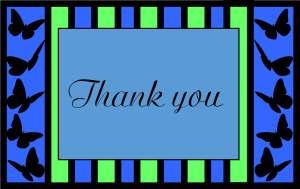
Thank you for reading. I appreciate your comments. Please share your thoughts.






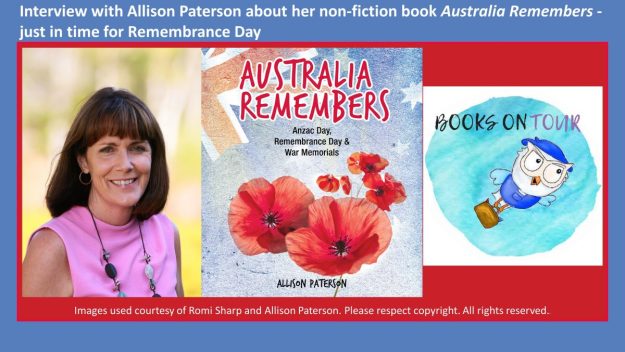


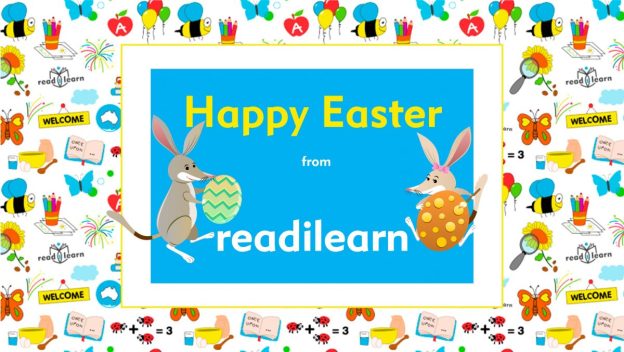






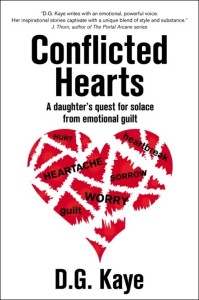




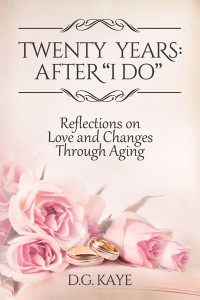
![School Days, Reminiscences of Charli Mills Welcome to the School Days, Reminiscences series in which my champion bloggers and authors share reminiscences of their school days. It’s my small way of thanking them for their support and of letting you know about their services and publications. This week, I am pleased to introduce Debby Gies (D.G. Kaye), author and blogger extraordinaire. I can’t remember when or how I met Debby, but I do know that very early on I read and thoroughly enjoyed her travel memoir Have Bags, Will Travel. While Debby has done far more travel than I, there was much in her book with which I could identify. I remember laughing out loud in places, surprised to find there was someone else who shared similar obsessive behaviour. Debby is a prolific writer, mainly of memoir. I have read others of her books and never been disappointed. Her style is open, from the heart, and conversational. You could be having a chat with a best friend over coffee, sharing love, life and laughter. In fact, those are things we both have in our blog taglines. How could we not be friends? Since our first encounter, Debby has been a constant supporter of both my blogs, always dropping by to share some words of wisdom or encouragement — a true champion. But perhaps I should allow Debby to tell you a little of herself: Debby Gies is a Canadian non-fiction/memoir author who writes under the pen name of D.G. Kaye. D.G. is born, raised, and resides in Toronto, Canada. Kaye writes about her life experiences, matters of the heart, and women’s issues hoping to empower others. Why I write: I love to tell stories that have lessons in them and hope to empower others by sharing my own experiences. I write raw and honest, hoping that others can relate and find that we always have a choice to move from a negative space to a positive. We need only the courage to take the leap. Describe yourself in three words: Optimistic, funny, worry-wart. (Is that four words?) Best advice: If you can’t say something nice, don’t say anything at all. Never do something to someone you wouldn’t want done unto yourself. Welcome Debby. Now let’s talk school. First of all, could you tell us where you attended school? I’m born and raised in Toronto, Canada. I originally began grade 1 going to a parochial school. Before the school year ended, I was stamping my feet demanding I wanted to go to ‘real school’, lol, meaning public school. I got my wish and grade 2 was Kenton Drive Public School where I was thrilled to have Miss Jacobs for my teacher as she was very compassionate toward me. In middle of grade 4, we moved (again) and changed schools to Rockford Road Public School till grade 7 where I spent my 3 years at Fisherville Junior High. In grade 10 I went to high school at William Lyon Mackenzie Collegiate – far out of my living district, but considered higher academically than the one near my home. It was a half mile walk to the bus and 3 busses there and back a day throughout high school. After high school I moved away from home and began working and taking night school classes for business and accounting where I received diplomas, which proved useful for many of the secretarial and admin jobs I had through the years. I also became a certified travel agent and then proceeded back to University of Toronto to study voice and theory in music. Did you attend a government, private or independent school? They were all government schools. What is the highest level of education you achieved? High school diploma and the school of hard knocks. What work or profession did you choose after school and was there anything in school that influenced this choice? While in school I couldn’t make up my mind what I wanted to do. My initial goals were to become a journalist or a lawyer. I had the grades to do so but not the inspiration nor the encouragement to follow through. I worked in the clothing industry for a few years in my early twenties, started as a salesgirl, working my way up to managerial positions and buyer. The fashion bug hit me early. I then became an executive secretary for a general manager of the Carlton Inn Hotel – best job ever! And then I moved on to run an office for a construction company for a friend and later did the same work for an architectural firm. After ‘those days’ I went to ‘dealer’ school where I became a licensed blackjack and poker dealer and worked in the casino business until I met my husband. I also spent the better part of my twenties trying to catch a break in the music industry as a singer. Fun times in bands doing gigs. I recorded a demo tape, but eventually I gave up the dream. What is you earliest memory of school? My earliest memory of school was a kind teacher I had in kindergarten – Mrs. Wagner. She knew my emotional struggles and paid me extra attention. I came from a severely, ongoing, broken home situation and a few of these teachers I pointed out were like angels with radar. What memories do you have of learning to read? Honestly, I don’t have any memories of learning to read other than I loved reading. Nobody ever read to me at home and we didn’t have any books. I must have had some great teachers! What memories do you have of learning to write? I couldn’t wait how to learn to write. I do remember I began writing as soon as I learned how to write as a tool to release my thoughts and feelings. I wrote poems and love notes on scraps of paper and made cards. Some I gave to intended recipients – some I never showed a soul. What do you remember about math classes? I enjoyed math until high school and always had good grades, but I lost interest when we began learning physics and calculus. I much preferred English and French classes. Languages have always fascinated me. What was your favourite subject? It’s a toss up between history and geography. I loved to learn about other countries and cultures, even as a child. But I’ll have to go with geography, which I think stimulated my interest to travel. What did you like best about school? My teachers. I had developed several rapports with teachers in many grades. When I look back on those days, I know it had to do with the compassion and extra attention they gave me that I didn’t receive at home. What did you like least about school? I hated gym class. I was not an active child, more of a thinker than a doer. I didn’t like the ugly uniforms we wore that weren’t the least flattering, especially for girls carrying extra weight, and I didn’t enjoy sports. I was the proverbial girl chosen last when picking teams. Here’s the girl who always kept a high 80s average throughout high school until the year I actually failed gym, which cut into my good grade average. Seriously, who fails gym? How do you think schools have changed since your school days? Oh my, that’s a loaded question. Even though I never had children, I’m quite aware how much the system has changed. There have been many cutbacks in after school programs, classrooms have too many students in them, and I hear complaints from parents that their kids are inundated with homework nowadays. Not to mention, the whole computer era that wasn’t our world then. The saddest thing I think that’s happening is the decision to no longer teach cursive writing. How on earth can they not teach that anymore? It’s sad the art of letter writing is on its way out with time. It also makes me wonder if children will even learn how to sign their name where print doesn’t cut it. What do you think schools (in general) do well? I’m not too familiar with what’s happening nowadays in classrooms, but I do know from having a 7-year-old great niece and having picked her up from school a few times, the system for safety seems to be excellent before picking up children from school. I must sign in, and my niece (her mother) must call the school to alert them someone else will be picking up her child. How do you think schools could be improved? They could definitely use more government funding, more teachers, more after school programs, and more benefits for the children whose families can’t afford supplies and books for their kids, and for field trips. [thank you] Thank you for sharing your reminiscences of school and thoughts about education in general, Debby. It’s pleasing to know that you enjoyed school and that you had compassionate teachers who helped you blossom. It’s been wonderful to have you here. I learned so much I didn’t already know about you. Find out more about Debby Gies (D.G. Kaye) and connect with her on social media or any of her author and blog pages www.dgkayewriter.com www.goodreads.com/dgkaye www.amazon.com/author/dgkaye7 www.twitter.com/@pokercubster (Of course there’s a story to this name!) www.facebook.com/dgkaye www.linkedin.com/in/DGKaye7 www.mewe.com/i/debbygies www.instagram.com/dgkaye www.pinterest.com/dgkaye7 Debby invites you to come join our Literary Diva’s Library Facebook group for writers and authors And our #ABRSC -Authors/bloggers rainbow support club. We are also on Mewe - https://mewe.com/join/theliterarydivashangout BOOKLINKS: [image] Conflicted Hearts [image] MenoWhat? A Memoir [image] Words We Carry [image] Have Bags, Will Travel [image] P.S. I Forgive You [image] Twenty Years: After “I Do” Visit me at my Amazon Author Page [books] If you missed previous reminiscences, check them out here: Charli Mills Sally Cronin Anne Goodwin Geoff Le Pard Hugh W. Roberts Look for future interviews in this series to be posted on Sunday evenings AEST. Coming soon: Pauline King Jules Paige D. Avery With more to follow. Note that, as next Sunday is Easter Sunday, I won’t be posting an interview. Pauline’s interview will be posted on 28 April. See you then. [thank you] Thank you for reading. I appreciate your comments. Please share your thoughts.](https://norahcolvin.files.wordpress.com/2019/04/books-by-d.g.-kaye.jpg?w=625&h=625)



